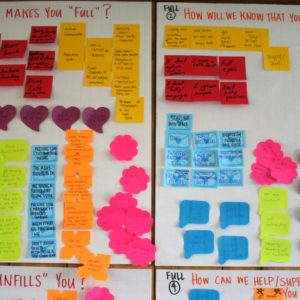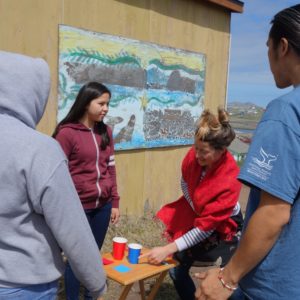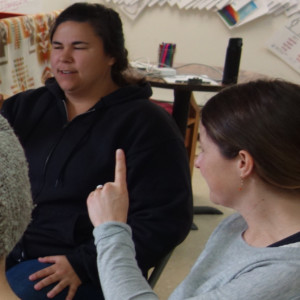
In the past month, two critical members of the Hupacasath First Nation died; they numbered among the last who spoke the language native to Vancouver island fluently from childhood.
Hupacasath speaker Dorothy Unger died Nov. 21 and Edward Tatoosh died more recently in December.
This caused a triple tragedy; the loss felt by their families, the loss felt by the Hupacasath, and the loss felt by those of us who will experience that much more cultural poverty, because we cannot benefit from the cultural wealth and wisdom encoded in the language fluently spoken by Ms. Unger or Mr. Tatoosh.
We, Evan Gardner and Willem Larsen, truly believe that the WAYK game offers the most powerful opportunity for supporting the revitalization of languages on the brink of extinction. In a matter of months WAYK can materially support an endangered language turning away from the brink, and the formation of a substantive fluent speaker population, with a bright future based on the easy and infectious quality of the language acquisition caused by playing the game in a language learning community.
It seems a long, slow road to spreading awareness of something so innocuous as a “language game” amongst endangered language communities; a long, slow road towards increasing perception of the WAYK game as a real force for profound transformation of the seeming tragic destinies of the many endangered languages around the world.
Even then, once many folks know about the game and want to use it to help their own endangered language, then still the work remains to actually use the game to help revitalize the languages in question.
This has all made Evan and me somewhat ruthlessly practical. We wish we could wave a magic wand and get the word out there; the more you, who support WAYK, do to spread word, the more we, in the end, will accomplish, of course. And we thank you for helping us to do the work that we feel so passionate about.
But we also have had to create a possibly grim triage for language revitalization, though we see it as full of both grief and hope.
We’ve trained an eye for the possible revitalization of any particular endangered language. According to the “Travels with Charlie” roadmap of fluent proficiency, the language can revitalize according to the proficiency level at which you still have speakers. Ideally you have a rich, diverse language community with plenty of male and female speakers at a “Superior”/”Charlie Rose” level.
But we can work with one.
If you don’t even have one left, your community essentially must “reinvent” the Superior level of speech for that language, a process rife with heavy cultural impact from the modern world; a culture world with very distinct values and paradigms. Decolonization becomes much more difficult. Not impossible, but much more difficult.
However, if you still have a diverse community of speakers at “Advanced”/”Larry King” level, then we still have hope.
But we can even work with just one.
If not even a single speaker at Advanced level exists, then that means no storytelling in that language exists any longer. To resuscitate the language at this point means to reinvent an entire tradition of storytelling and Advanced interaction. But still, you can do it. The language will change according to the impact of the modern world, but still a lot of beautiful expression will exist, and the language can rise again, in a somewhat new form.
If not even a single speaker of “Intermediate”/”Get to the Party” exists, then we have real problems. If you can’t ask “What is that? Is that a stone?”, there’s not much we can do. In order for us to help, you must be able to still ask “what is that?” in your language, however your language asks that most basic of questions. If you can’t, then we have nothing left but the Novice world of single words and memorized phrases, outside of fluent conversation.
Though one could perhaps still, regardless, with sufficient linguistic documentation, resurrect the language from Novice in some form, the strength of WAYK lies in its ability to maintain the vitality and lineage of the oral tradition, the spoken rhythm and song of the actual living conversation of the language.
So, don’t break our hearts. Don’t wait too long. Invite us as soon as possible, hopefully while you still have Superior speakers, and all the beautiful, diverse, and ever-learning community of Advanced, Intermediate, and baby Novices that go along with the rich, mature speech of the Superior adults.
But whomever you have still speaking, at whatever level, don’t wait; allow us to give you vital tools for turning the destiny of your language around, so we can keep alive as much of your rich legacy as possible.
Languages are dying, right now; yet still we have hope.





[…] this article, following forward from the triage of a particular language’s need, Evan and I look at what it takes to turn around the momentum of a language; from more or less […]
This post is close to poetry ! I am profoundly touched !
I will go and contact first nation historians in Quebec and try to find the endangered languages. But if feel I am going to war with a pea shooter not having the tools of wayk integrated.